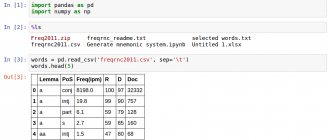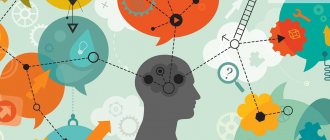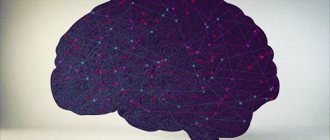What gives value to all that we know? Perhaps we will not be mistaken if we say that this is the very fact that we can extract information from the depths of our memory, the very fact that we can remember something. And the better developed our ability to remember, the more valuable our knowledge base is in total, the more we can put into practice, the more opportunities we have to achieve goals and success. But how can you improve your memory? How to develop memory? How to remember more and faster? These questions are asked not only by you and me, but also by a huge number of scientists and specialists from various fields. And our selection today will help you boost your intellect and learn to remember more effectively.
1
Spaced repetition method
The spaced repetition technique is quite old, but there is still debate about its effectiveness. We decided to look at this issue from a scientific point of view and determine the most optimal modes of memory operation. In this article we will talk about the forgetting curve, developed in the late 1880s by psychologist Hermann Ebbinghaus, and the new theory of forgetting proposed by Benedict Carey. Naturally, we'll cover the best repetition intervals, as well as introduce you to the flash card method and spaced repetition apps. Read more…
3
We learn better by taking turns
Often repetition seems to be the only sure way to learn information or hone a skill. You have used this method more than once when memorizing a poem or shooting at goal with one hand. However, less obvious alternation tactics can be more effective.
So, in one experiment, participants were shown paintings painted in different artistic styles. The first group was shown six examples of each style sequentially, and the second group was shown mixed examples (different schools in random order). The latter won: they guessed the style twice as often. It is curious that 70% of all subjects before the start of the study were sure that sequence should give a head start to alternation.
You shouldn’t focus only on penalties during training. When learning a foreign language, mix memorizing words with listening to speech in the original or writing.
System for memorizing numbers and cards - ChDP
We live in the 21st century, in the era of information technology. And we happily transfer many of our problems to machines. One of these problems is the need to remember information. Indeed, why do we need to remember our to-do list, groceries or any large amounts of data if all this is just a few clicks away? Despite this, many people try to improve their memory. This is convenient in everyday life and very useful: by forcing your brain to work in your youth, you will thank yourself in old age. In this article we will introduce you to a special system for memorizing numbers and cards called “Person - Action - Object” (PA). Read more…
4
Sleep greatly affects memory
Studies have shown that getting a full night of sleep between cramming and an exam significantly improves results. One experiment tested participants' motor skills after intensive training. And those subjects who slept 12 hours before the test showed much better results than those who were tested every 4 hours of wakefulness.
Napping also adds a positive effect. At the University of California, it was found that students who sat down after solving a difficult task performed the following tasks better than those who did not sleep a wink.
wernerimages/Shutterstock.com
It is important to know that sleep is good not only after, but also before training. It turns the brain into a dry sponge, ready to absorb every drop of knowledge.
Try practicing new skills and reading before bed or nap. After waking up, put on paper what you learned.
How to train your memory
Did you know that scientists estimate that the human brain, when compared to a computer, can store between 1 and 7 million megabytes of data? Probably many have heard about this, but not everyone is able to boast of such a phenomenal memory. How nice it would be to read a book or textbook and reproduce in detail what it says! How cool it is to remember all the names, faces and birthdays! How wonderful it is to find information in the storage of your head at the right moment that will answer any question! Many only dream of this, but there are those who are capable of it, because it is possible to achieve such results - you just need to know how! We will tell you about this. Read more…
5
Comparison with short-term memory
Short- and long-term memory work closely together. All information first enters the short-term memory area and is then transferred to long-term storage.
Such a two-stage algorithm for storing information is necessary so that unnecessary information is eliminated at the first stage and does not overload the long-term storage.
Information entered into short-term memory remains there for about 30 seconds, unnecessary information disappears, and important information moves on to the next stage. Long-term memory is a repository of important information that has been emotionally processed, reconstructed and stored for a long time.
The table shows the main differences between short- and long-term memory.
| Specifications : | short-term | long-term |
| preservation | attention | repetition |
| coding | through hearing and sight | through meaning |
| volume | 7 elements (+/- 2) | no restrictions |
| forgetting | through repression | not happening |
| maintaining a trace | about 30 seconds | a few minutes - several decades |
| information retrieval method | search | search, updating |
| structure | not associative | associative |
| playback | complete with restoration of each element for the last 30–40 ms | Depending on the need, information is restored in full or partially |
| reasons for playback failure | displacement and attenuation of the trace | mutual suppression of opposing processes, organic disorders, non-specific instructions |
Leitner's system: 5 steps to learn anything
How often do you have to complain about your memory? How often do you need to remember something, but you just can’t remember it? And how quickly do you get so tired of repeating all this that you decide to do without this knowledge? About 80% of people who study, for example, a foreign language face a similar situation. And just to help them, the Leitner system was created, the main one of which is the so-called flash cards, on which information is recorded for memorization. However, it later turned out that the system is suitable for memorizing any information, not just linguistic information. What kind of system is this? We invite you to get acquainted in this article. Read more…
6
Lack of sleep has a detrimental effect on learning
Lack of awareness about sleep and underestimation of its importance have the most adverse effect on the “flexibility” of your convolutions. Science is still very far from a detailed description of all the healing functions of rest, but it clearly understands what its lack leads to. Lack of sleep forces the head to slow down and act according to stereotyped patterns without sound risk. In addition, the chance of getting physical damage increases due to the fatigue of all the “cogs” of the body.
When it comes to learning, lack of sleep reduces the brain's ability to accept new information by 40%. So there is no need to torment yourself with low efficiency nights, it is better to rest and wake up fully equipped.
Research from Harvard Medical School has some interesting data: Restricting your sleep in the first hours after learning something new can negate your gains, even if you get a great night's sleep later.
Normalize the amount and frequency of sleep during training. This way you will be much more attentive and will be able to avoid memory lapses.
Mnemonics. Where to begin?
Have you ever forgotten passwords or names of new acquaintances? Is it difficult for you to learn a phone number in a few seconds, but memorizing a page of text can take a whole evening? After reading this article, you will forever get rid of the need to write down a list of products, and remembering a sequence of several dozen random words will not be difficult. Mnemonics is a set of techniques and methods that facilitate memorization and increase memory capacity through the formation of artificial associations. In this article you will learn the basic principles of using this technique. Read more…
7
Technique for quickly memorizing text
There are several special techniques that are aimed at accelerating the memorization of information of any volume. These include:
- Complete analysis and understanding of the data being read , it is important to understand what is written and what is the main idea of the information being studied.
- Visualization of what you read , namely, try to mentally select a suitable picture for each sentence or word.
- After reading the information, it is advisable to rewrite everything that you remember on a piece of paper. This will help you understand what data has been learned and what needs to be reworked.
- Author's reading , that is, listening to data using an audio recording, is considered an excellent assistant for memorizing text
- to re-read what you are studying several times a day .
- In order to learn a text by heart, you need to read it before going to bed .
- To quickly memorize text, you need to take breaks during work.
- A comfortable environment and the absence of external stimuli will help you easily remember a large amount of data.
Non-nemonic memorization rules
Mnemonic memorization techniques are now quite popular, thousands of websites write about them, books and manuals are published, and we have discussed them more than once on the pages of our blog. However, they also have some disadvantages. To master them, you need to undergo appropriate training, and they do not work with all types of data. Therefore, we bring to your attention an article where we describe methods of memorization based on the peculiarities of the human brain. They will make it easier to memorize any information, and you will be able to apply them immediately after familiarizing yourself with the material. Read more…
8
Content
- Which memory is responsible for storing information?
- How do we perceive and remember?
Human memory is associated with body systems, functionality and activities.
When you write, climb stairs, learn a poem, different parts of the brain are activated.
Memory is divided according to the duration of storage of information and how the material is remembered. Metaphorically, memory resembles a factory, where the actions of machines and people create a chain.
In order for the process to be enjoyable and for a person to make progress in work and study, you need to know your strengths in one or another type of memory. The fastest way to achieve this is to take a course that guarantees the development of memory and attention.
Types of memory and their features
Many people underestimate the importance of memory for self-development and reason like this: “Why train your memory if the main thing is not the quantity of memorized material, but its quality.” This is true, but research shows that by developing memory, you develop many different abilities: creative thinking, the ability to quickly process incoming information, the ability to keep several options in mind in order to choose the best, and much more. In this article we will look not only at all types of memory, but also show the importance of each of them. Read more…
9
How to read to remember better
But, still, what is the best way to remember and assimilate a large amount of information? A trained memory is capable of accepting a large amount of information if one resorts to improving the quality of its assimilation. There is a whole technique that can help you absorb information and remember it in the shortest possible time:
- Concentrate and try to understand the goal, namely, think about how this information will be useful and whether it will bring positive results.
- Read the table of contents and contents of the material. The main purpose of this technique is to realize what the reader is about to learn. This method can not only train the memory, but also prepare the reader for long or short passages.
- To memorize and improve the assimilation of the information provided, it is advisable to choose only paper media, since proofreading text from electronic media reduces productivity by 30%.
- Getting rid of external irritating factors is another important point for a productive result.
- A brief summary of each chapter will be a useful method for better understanding of the information.
- Trying to retell the material you have read to your interlocutor will help the reader understand the information well. You just need to read, not memorize the information, but try to understand it.
How to forget unnecessary information
Memory is one of the most important abilities of a person, influencing his entire life. And many people take the problem of developing their memory skills very seriously. Fortunately, today there are a huge number of opportunities for memory development. If a person has a need to improve his memory, he can easily find suitable materials. However, much less attention is paid to the problem of forgetting, although its importance is no less. After all, many of us often have a desire to get rid of some memories, feelings from the past, and simply free our memory from unnecessary information. This is exactly what we will talk about in the article. Read more…
10
We remember the big picture better than the details.
When learning a lot of new concepts, it's easy to get overwhelmed by the increasing data flow. In order to avoid overload, it is necessary to look back and draw the big picture. You must understand how fresh knowledge fits into a single puzzle and how it can be useful. The brain assimilates information better if it makes a connection between it and something previously known within the same structure.
For a better understanding, let's give a metaphor. Imagine your brains are a closet with many shelves. As you place more and more clothes in your closet, you begin to separate them according to different criteria. And here’s a new thing (new information) - a black jacket. It can be sent to other knitted items, added to a winter wardrobe, or assigned to its dark brothers. In real life, your jacket will find its place in one of these corners. Your brain connects knowledge with everything else. You will easily remember the information later, because it is already laced with threads of what is firmly stuck in your head.
Keep a large outline or lists of notes in sight that explain the big picture of what you're learning, and add new things to it each time you go along the way.
Online program “Mnemonics”
In this online program, in just 5 weeks, with the help of special mnemonics and online simulators, you will learn to quickly and permanently remember names and faces, numbers, dates, birthdays, foreign words and much more. The program is ideal for schoolchildren and students, people whose work is related to analytics and who need to keep numerous lists and numbers in their heads, for those who often have to communicate with new people. It will also be useful for those who want to increase their level of erudition and intelligence, and also simply want to improve their memory. Find out more...
Like any other ability, memory can be trained, and it can be trained very, very successfully. All you need is desire and a certain amount of diligence. Get started right now and the results won’t take long to arrive!
We also recommend reading:
- Storytelling
- Types of memory and their features
- Spaced repetition method
- 8 Scientific Ways to Improve Memory
- Non-nemonic memorization rules
- Forgetting curve
- Rules and ways to improve memory
- 5 books that will make you a professional mnemonist
- Mnemonics for beginners
- Visuospatial Corsi test: description and application
- How to train your memory
Key words:1Mnemonics
How to learn to remember more and faster: recommendations from psychologists
Each person has individual memory characteristics. Someone, for example, is naturally good at remembering faces, landscapes and other visual images. Some people find it easy to remember information by ear, so they know all the popular songs by heart.
However, there are general patterns that are common to all people. We will look at them in the article. As well as ways and techniques for their development. I'll tell you what you need to do to better remember any information.
Understand first, remember later
The sore question of all students is: “How to learn the material so that at least something remains in your head?” The answer of psychologists: “Give up mechanical cramming.” It has very little effect, and it consumes a lot of resources. Even if you manage to reproduce the learned material at the right time, it will not stay in your head for long. Why waste time?
The brain remembers information well that evokes familiar associations or images. Unfamiliar words for him are a meaningless set of letters, which he will immediately try to get rid of. So before you try to remember something, make sure you understand every single word.
If you are learning a text in a foreign language, first translate it completely and write down unfamiliar words. If you are dealing with highly specialized information that is replete with terms, take the trouble to first find out the meaning of each of them.
Cut without losing the essence
In order to use memory more efficiently, you need to learn to cut off unnecessary information. Brain resources are limited, so it’s stupid to waste them on unimportant nonsense. Brief information before memorizing it.
At first, you may feel like there is nothing to cut off. But this is just the first impression. Clear the information of subjective assessments and emotions, remove abstract reasoning, and the very essence remains.
To practice, I advise you to create an account on Twitter and regularly post your thoughts there. The 140 character limit will help you develop brevity and conciseness.
Say out loud what you are trying to remember
This method is primarily suitable for those who have difficulty remembering visual material. When reading aloud, we receive information from two analyzers at once: visual and auditory. Accordingly, several parts of the brain are involved in its processing and such information is recognized as more important.
In addition, reading aloud requires additional concentration - you will not be able to read and think about something abstract. This means you won’t miss important details, and you won’t have to re-read it ten times. You can also record key words and phrases on a voice recorder and alternate reading with listening.
Think positively
If you try to remember something with the thought “I won’t succeed,” then you really won’t succeed. You must believe in the success of what you are doing, otherwise the whole job will turn into a Sisyphean task.
Even if there is one night left before the exam, and you have just opened your tickets, be determined to use the capabilities of your memory to the maximum. Cut off all negative thoughts and encourage your memory with pleasant words.
Do you remember how you and I learned 30 English words in a day that year? It's only the beginning! Now let's get together and deal with these tickets!
Repeat correctly
It’s not enough to memorize something once, you also need to consolidate this information. This requires repetition. Psychologists advise repeating the material in this way: immediately after memorizing, then after 15–20 minutes, then after a day and again after 2–3 weeks. This method is called spaced repetition method. Today it is considered the best.
Also, repetition requires any necessary information that you have not used for a long time, but would like to save. For example, English learned at school, mathematical formulas, capitals of states. Find time to sometimes “chase” yourself through these disciplines.
Take breaks
Memorizing new information is intense mental work. If you don't give your brain a rest, it will very quickly exhaust all its reserves. So don't forget to take breaks.
A quality break is not switching from reading a textbook to reading a news feed on a social network. It is important to free the analyzer with which you perceived information. If you read, then free your eyes; if you listen, free your ears. It is best to switch to physical activity - walk, do exercises.
You need to take breaks every hour for at least 10 minutes. Set a timer so you don't accidentally miss this time.
Think practically
Very often we have to remember abstract information that is in no way connected with the reality around us. For example, mathematical formulas, terms from the humanities.
The human brain is a very practical organ. Despite the fact that he can operate with abstract categories, he remembers more easily information that has a specific material expression. Therefore, try to connect everything that you are trying to remember with reality.
Visualize information
Graphs, diagrams, diagrams, presentations are great for remembering material. No wonder teachers often resort to them at school. Take these helpers into service too.
Just don’t bother with them too much - turn off the perfectionist for a while. It is enough if the visual materials are understandable only to you.
Choose the right time to memorize
The brain is most productive in the early morning hours - from 7 to 10. Then attention becomes dull, the mind is filled with extraneous thoughts, and we begin to get distracted. Make good use of this time. It's better to wake up early and work out for 3 hours than to sleep until lunch and then torment yourself for the rest of the day.
The second most productive peak occurs in the evening - from 8 to 11 o'clock. At this time, it is good to repeat the material already studied. Let your brain be busy processing incoming information before going to bed. When you fall asleep, this process will smoothly move to the unconscious level.
What are the capabilities of human memory
Most people have a very ordinary memory, which is neither good nor bad. One percent of humanity has a phenomenal memory. Another five percent of the planet's inhabitants are lucky - they have the opportunity to “photograph” information without making any effort.
Many of us are sure that a significant amount of memory is used to store short-term information, when, first of all, current moments are remembered. The most important - especially significant - events, which in the future become memories of the past, are remembered secondarily. This is exactly what happens in traditional use.
But experts believe that human capabilities are much broader. Scientists studying the resources of the human brain have recently argued that the main percentage of people exploit no more than one tenth of the abilities of their heads and only one percent does this to the fullest extent.
Neuroscientists of the new generation insist that the brain is one hundred percent involved in the process of memorization. However, due to the inability to properly manage received messages, only what is then actively used is retained in the “archive”.
You are preparing for exams by memorizing the contents of exam papers. We passed the session and forgot it or put it aside on the mezzanine of memory. It may be useful in the future, or it may never be needed.
It has been proven that the storage capacity of the human brain is extremely large. According to unspecified data, it amounts to more than one hundred twenty-five million megabytes. This is approximately eighteen million CD-R discs with a capacity of seven hundred megabytes. Why does a person remember so little? Because he doesn’t strive to find out how to learn to remember information.
Technique 5. Explain the topic to someone else
“Please explain to me as if I were 11 years old,” this is how the famous podcast author and popularizer of science Ilya Kolmanovsky often begins his conversation with serious scientists. The ability to explain complex things simply is not a gift from above, but a skill that can be developed. Even if the topic is complex, you can rework it so that you can explain it even to a child - no matter if it is a younger brother or sister, a son or daughter, or an inner child who needs an understandable explanation. Playing the role of a teacher, a person seeks the most understandable explanation, first of all, for himself. And this tool will be very effective if you need to understand a topic yourself. Moreover, a good teacher will always look beyond the textbook - watch a lecture or listen to a podcast, leaf through an encyclopedia, or at least Google it. Often, if you review a topic from multiple sources and relay it to someone, you can understand it much better than memorizing two paragraphs.
About the author: Sofya Burnazova, teacher of Russian language and literature, journalist.
Join the Teachers' Club on Facebook
Exploring new routes
A very interesting and effective method. When we walk the same route, it is both boring and useless. It’s clear that you won’t find 50 routes to work, but we’re talking about all the places you visit: restaurants, cinemas, parks, friends... Try to take different routes to do these things (and, preferably, on foot, if time permits).
Is it possible to remember everything in the world? We tell you how our memory works
How does human memory work?
Memory is not just something that happens in your brain. You can't just create a memory, you have to shape it. It's not the same thing.
There are many processes in the human brain, most of them are still being studied. For example, those that determine how and why memories are stored and how they are recalled. Scientists, particularly neuroscientists, have known for years that a person's condition—young or old, stressed or not—can interfere with or facilitate the process of encoding memory in the mind.
Now something else is starting to become clear. When a person forgets something, it is not because his memory is “poor.” What actually happens is that the brain is reorganized so it can focus on more important things. There are even leading theories that the brain stores everything that has ever happened to you. It simply forms neural pathways to memories it deems important.
It may sound crazy, but there is strong evidence for this theory, reports Interesting Engineering. There are certain clinical disorders that cause people to remember everything that has ever happened to them. Like the boy in the video below:
Memories, or rather the neural pathways used to recall them, become stronger each time we recall certain events. Actively practicing memory retrieval, such as studying for an exam, will improve your brain's ability to remember.
So how then can we remember something better if we already understand the basic principle?
The best ways to remember
Several studies by leading psychologists and neuroscientists show that taking quizzes, practicing, and successfully remembering something is much better than simply trying to remember something. In these studies, students specifically used different memory aids to learn foreign language words.
Some groups simply learned translations of words. Others used various techniques. 7 days after the start of the experiment, those students who did not use any techniques had learned 25% of the words or below. Other students learned 80% of the words. Based on evidence, researchers have found that learning techniques such as flashcards or ongoing questioning help students retain memories. These same principles can be applied to fixing memories in your head.
There is another method that appeared in ancient Greece, and thanks to the character of Sir Arthur Conan Doyle, it has become discussed in our time.
What are the memory techniques?
- Working memory training
Working memory (WM), also known as working memory, is a set of processes that allow us to store and temporarily access information for complex cognitive tasks such as language comprehension, reading, mathematics, learning, or reasoning. Working memory is a type of short-term memory.
According to Baddeley and Hitch's model, working memory consists of three systems and includes both storage and processing components.
Central control element: works as an attention monitoring system that decides what we pay attention to and what we don’t, and also organizes the sequence of actions that need to be performed to carry out an activity. Phonological loop: allows us to retain written and spoken material in memory. Visuospatial Sketch: Helps us manage and retain visual information. Episodic Buffer: Used to integrate information from the phonological loop and visuospatial sketch, constructing a coherent episode, and for linking to long-term memory.
We use working (or RAM) memory every day to perform various types of tasks. When we try to remember a phone number before writing it down. When we are engaged in a conversation, we need to retain what we have just said in our memory in order to process that information and express our point of view. When we take notes at school or university, we need to remember what the teacher said so that we can then write it down in our own words. When we mentally count the cost of our purchases in the supermarket to understand whether we have enough money.
- Method of loci, or “memory halls”
The method of loci (other names - method of places, memory palace, palaces of the mind, spatial mnemonics) is a mnemonic (that is, helping to develop memory) method, set out in ancient Roman treatises on rhetoric. Based on mental-spatial associations, the purpose of which is to create, organize and further use the entire contents of human memory. The use of this method of organizing and storing information can be seen in many works on psychology and neuroscience, despite the fact that it was also used in the first half of the 19th century in works on rhetoric, logic and philosophy.
Almost all the nuances of memory training known to us from antiquity were described between 86 and 82 AD. BC e. in a short anonymous textbook "Rhetoric for Herennius".
The Method of Loci is often called the "mental walk." In essence, the method is about developing memory through visualization: creating a space in your imagination in which you can store a huge amount of information. In other words, a person remembers, for example, the layout of a building or the location of shops on a certain street, or other geographical objects consisting of a certain number of different locations (places). When a person using the described method needs to remember some facts, he, as it were, goes for a walk through the locations mentioned above and associates some fact (for example, a number that needs to be remembered) with one of the objects of his “memory halls” by forming a kind of image that logically combines a fact required for memorization and a distinctive feature of the location (for example, a room in a palace or an object located in this room).
This method is often used in mnemonic competitions, when competitors must memorize 500 different numbers in 15 minutes or a sequence of 100 objects, which are given only a few seconds to memorize.
Just watch the video below to see how effective this technique is for memorizing thousands of digits of Pi.
World Memory Championships have been held since 1991. The first one, held in London, was won by Briton Dominic O'Brien. Currently, competitions are held in 30 countries around the world in the following disciplines: abstract images, words, names and faces, speed cards, sequence of cards per hour, speed numbers, numbers per hour, binary numbers for speed, historical dates, numbers by ear . Often, processes that play a key role in memory work encounter problems of a psychological and physiological nature.
Scientists have finally decided to test in a clinical setting which memorization method is better.
Study of "memory halls"
Sherlock Holmes remembers everything by imagining that he stores pieces of information in “memory halls.” Now, researchers have discovered that this method actually works for creating long-lasting memories.
According to a study published in Science Advances, by training with this method, the world's top memory champions can memorize an inordinate amount of information, such as lists of words, series of numbers, and decks of cards. But the World Memory Championships only tests short-term memory, and few studies have looked at the brain as people use this method to improve memory.
“We were fascinated by how such outstanding memory performance as was demonstrated at the World Memory Championships was possible,” said lead author Isabella Wagner, a female cognitive neuroscientist at the University of Vienna.
According to her, the method of loci uses well-known places or routes as a “framework” or “structure” for embedding new, unrelated information. The combination of prior knowledge—a familiar path—and new information helps improve memory.
To evaluate the method of loci, Wagner and her team recruited 17 “memory champions”—people who were ranked in the top 50 memory competitions in the world—and 16 people who were age and intelligence matched. The researchers scanned the participants' brains using functional magnetic resonance imaging (fMRI), asking them to study random words from a list. The researchers then gave participants three words from a list and asked them to remember whether the words were in the same order as the ones previously studied.
In the second part of the study, they recruited 50 participants who had no previous experience with mnemonics and trained 17 of them to recall memories for six weeks using the method of loci. The remaining participants were in the control group (16 of them were trained using a different mnemonic tactic, “working memory training,” and 17 people were not trained at all). They scanned the participants' brains again using fMRI as they performed the same tasks both before and after the training. The researchers also asked them to remember which words were on the list 20 minutes and 24 hours after they were scanned with fMRI.
The team used this test to identify "weak memories," or those that could be recalled after 20 minutes but not after 24 hours, and "strong memories," or those that could be recalled after 24 hours. Four months later, the researchers retested the participants' ability to remember and recall the words.
What's the result?
As expected, participants showed better and more durable memory after training with the method of loci than after training with a different memory technique or no technique at all. Participants who trained with the ancient method showed a significant increase in long-term memories, but little change in weak memories (or short-term memories that disappeared after 20 minutes) compared to control groups.
After 20 minutes, people who were trained with the loci method remembered about 62 words from the list, while those trained with another method remembered 41, and those who received no training at all remembered 36. After 24 hours, people who received training according to the method of loci, they remembered about 56 words versus 30 and 21 in the control groups, respectively.
Four months later, people trained in the method of loci could remember about 50 words, versus 30 and 27 in the control groups, respectively. Moreover, world champion memorizers and participants who trained using the method of loci showed similar brain activity when remembering lists of words and their order.
The team also stumbled upon something unexpected: While both the world champions and competitors performed these tasks, their brain activity decreased in areas typically associated with memory processing and long-term memory, Wagner told Live Science. “This was somewhat surprising to us because better performance is typically associated with increased engagement of different brain regions,” she said.
In other words, they found that less brain activation leads to better memory. The method of loci appears to encourage the brain to work more efficiently. Additionally, while participants rested, those trained in the loci technique increased brain connectivity between other causes important for long-term memory retention.
Read more
Physicists have created an analogue of a black hole and confirmed Hawking's theory. Where it leads?
Because of the Sun, the Earth's atmosphere will lose all free oxygen
Abortion and science: what will happen to the children they give birth to?
Pi is a mathematical constant that expresses the ratio of the circumference of a circle to its diameter. Equal to approximately 3.141592653589793238462643…
Functional magnetic resonance imaging, functional MRI, or fMRI, is a type of magnetic resonance imaging that is performed to measure hemodynamic responses (changes in blood flow) caused by neural activity in the brain or spinal cord. This method is based on the fact that cerebral blood flow and neuronal activity are related. When an area of the brain is active, blood flow to that area also increases. fMRI allows us to determine the activation of a specific area of the brain during normal functioning under the influence of various physical factors (for example, body movement) and under various pathological conditions.
Mnemonics, mnemonics - a set of special techniques and methods that facilitate memorizing the necessary information and increasing the volume of memory through the formation of associations (connections): replacing abstract objects and facts with concepts and ideas that have a visual, auditory or kinesthetic representation, linking objects with existing information in memory of various types of modification to simplify memorization.
Technique 1. Determine your dominant type of information perception and use it
It is well known that people are divided into visual, auditory and kinesthetic learners. Although the majority have a mixed type of perception, one of them still dominates over the rest. Some researchers also identify a fourth type - digitals (discrete), for which logical connections and analysis are more important than anything else. However, digital children are not singled out because they become digital people throughout their lives. If you find out the type of perception of a child, you can significantly make his life easier by choosing a memorization technique for him from those mentioned above.
For visual learners, it is recommended first of all to create a comfortable environment - silence and order in the workplace are important to them. The visual component of teaching aids or additional materials is also important - if possible, it is better to choose stylish and bright posters, dictionaries, collections (these are often sold in bookstores). When studying the material, the teacher is recommended to resort to constructing diagrams and tables, highlighting headings and semantic blocks in color, and as a method of control, you can offer the student a mental map. For auditory learners, the process of live communication is important - reading a textbook and memorizing definitions from it can be torture for them. Auditory learners are usually good at explanations, so after studying and discussing new material, it is worth asking the child to retell everything in his own words. If you need to learn, for example, a poem from literature, you can find a recording of its reading on the Internet and after several listenings and repetitions out loud, the auditory learner will know it by heart. Regular books can be replaced with audio plays, and you can also accustom your child to podcasts and recorded lectures, which he will listen to with pleasure. For kinesthetic learners, it is important to be in motion and switch, so the learning process should be divided into periods that will alternate with pauses. You can take the Pomodoro technique as a basis or come up with your own - for example, after each completed paragraph, play an outdoor game (it can be combined with training, which is an additional advantage for a kinesthetic learner). Also, in teaching kinesthetics, it is necessary to focus on muscle memory (copying by hand), but alternate such exercises with interactive ones to avoid overwork. You can create interactive exercises for any subject on Learningapps.











